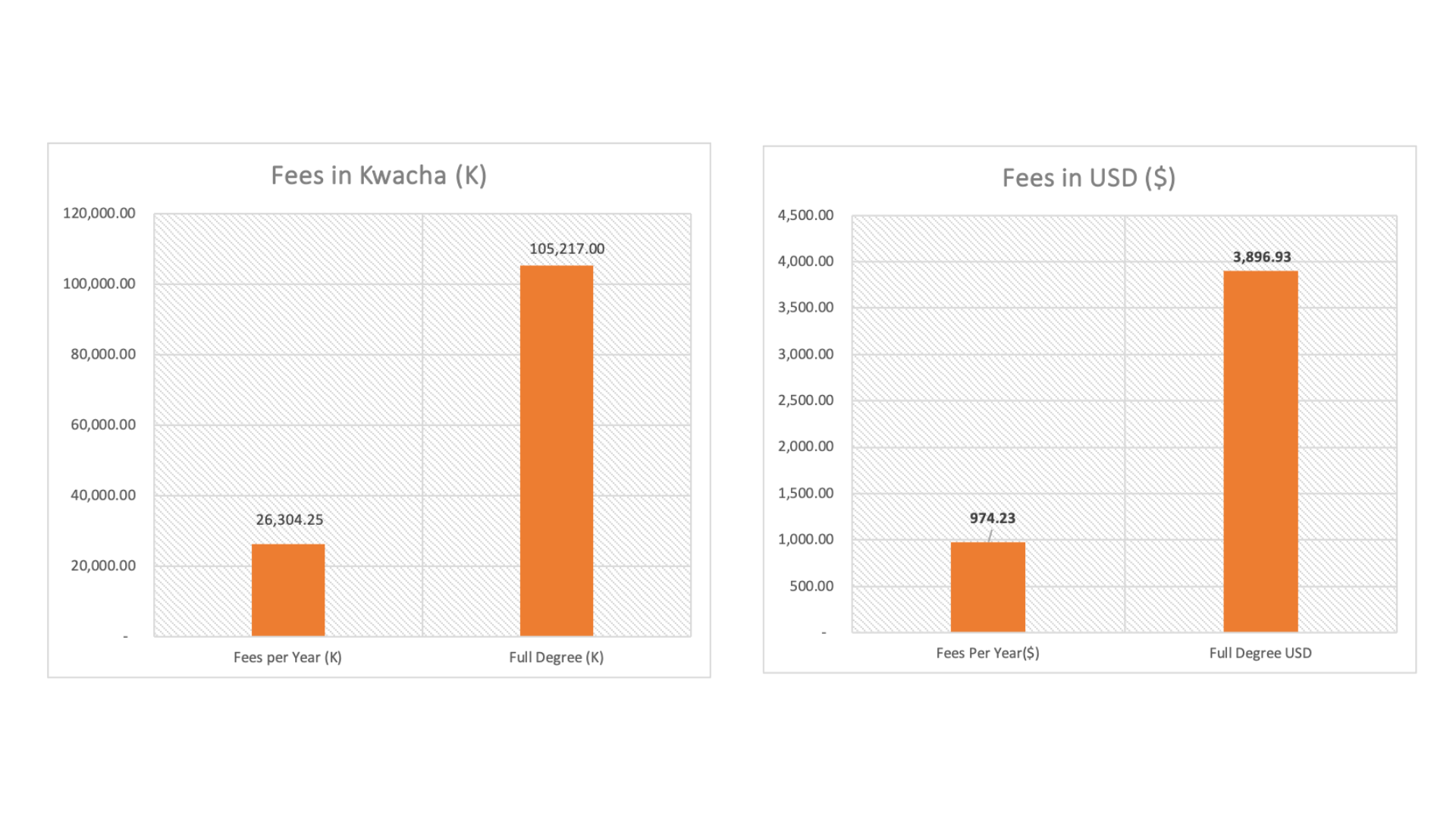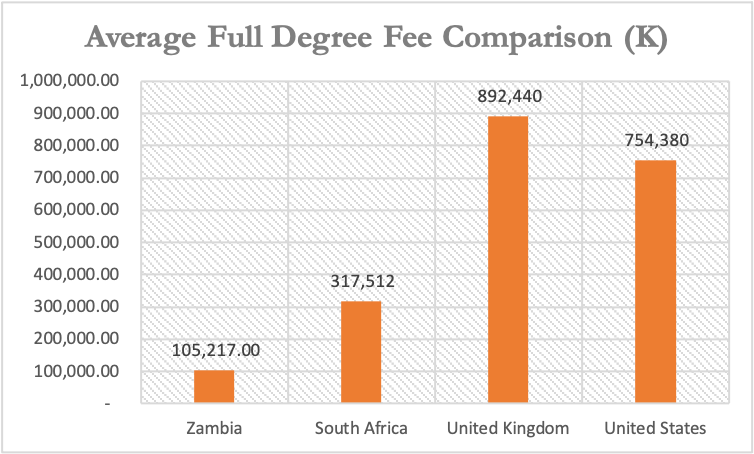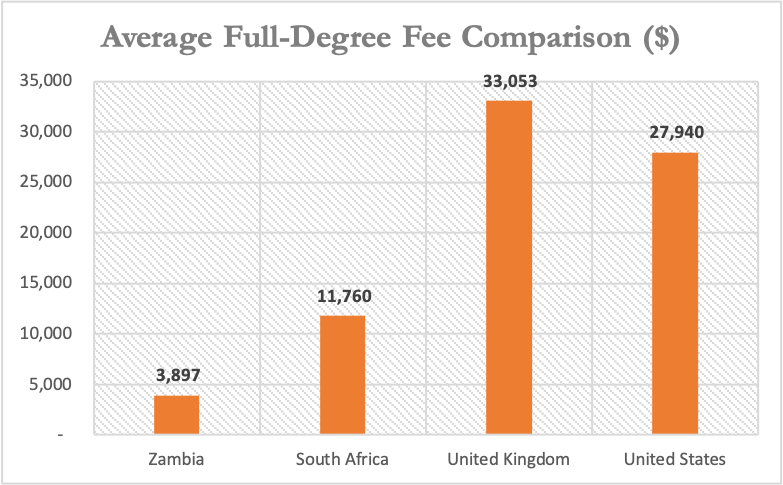
Choosing a career path can be limiting, especially with limited access to career guidance services in both secondary schools and universities in Zambia. Public schools, serving over 8 million students (as of March 2023, according to The Africa Report), offer minimal preparation for real-world careers for the over 160,000 graduates they produce every year.
Many grade twelve students might name medicine, law, economics, engineering, and nursing as their desired career paths. This may not necessarily reflect a deep understanding of these fields, but rather the influence of their perceived prestige and limited exposure to other options. In some cases, students might be steered towards specific careers due to financial constraints and family circumstances, rather than personal interests. In this article, we explore some practical career steps students and professionals should consider.
Here are some key considerations when exploring career options in Zambia:
1. The Cost of Education
While free primary and secondary education is commendable, university training can be expensive. Therefore, one needs to do research regarding what sort of education they want to pursue and why.
The average first-year tuition fee for an arts program in Zambia is K26,304.25 per year, translating to around K105,217 for a four-year degree, excluding living expenses. This stands in stark contrast to the average monthly salary of K6,000 (around $223 for 2024). While some universities offer tiered fee structures where students pay less in the subsequent years, the overall cost remains significant.

Admittedly, the issue of high tuition fees is not unique to Zambia, as education costs are high globally and on an upward trajectory, generally. Master’s degrees and PhDs also come with their own costs, with options for funding postgraduate studies explored in future articles. Compared to South Africa, the United Kingdom and the United States, countries which are considered to offer high-quality education in comparative terms, Zambia is way cheaper.

To be clear, these figures are only estimates, as there are several factors that would impact the overall fee that a student gets to pay. Factors like being an international student, for instance, or the chosen field of study and location can further influence the final cost. The figure below gives the average bachelor’s degree fees in US dollar terms. It is important to note that bachelor’s degrees in the United Kingdom are generally three years.

Notably, some careers, like pilot training, seem virtually inaccessible to ordinary Zambians due to the overall costs involved. Although pilot training doesn’t necessarily follow the same academic track as three or four-year bachelor’s degrees, the cost of moving from zero experience to obtaining an Air Transport Pilot License (ATPL) can set you back between K1m and K3m, depending on where one does the flight training from. You can read about pilot training in future articles.
The point here is that the high cost of education underscores the importance of careful career selection.
2. Don’t Consider Money Only
Another practical career step that students and professionals should consider is that money isn’t everything. Financial gain is certainly a factor, but choosing a career solely for money can lead to dissatisfaction. Consider intrinsic factors like your interests, whether you will thrive in a particular environment or not, and think about your long-term goals. Money is important, but it shouldn’t be the sole motivator. Most jobs won’t make you rich on their own. Think of a job as a foundation; your skills and effort will determine your financial success.
3. Perseverance is Key
Any worthwhile pursuit has its challenges. Your chosen career will likely have moments of difficulty that might make you want to give up. Each field requires discipline—that’s why they’re called disciplines after all. Indeed, some careers have much easier entry points than others. However, all require hard work to excel. Mastering technical skills, gaining the necessary knowledge, and developing competencies takes dedication.
The truth is, nothing worthwhile is easy. You will have to work hard for what you want no matter how hard it gets. The demands of training for your career can take a toll academically, financially, socially, mentally, and emotionally. The key is to persevere and not give up.
4. Redefining Your Path

Don’t be afraid to change careers. Yes. Remember, many of us haven’t had the ideal foundation for career preparation. Circumstances, parental influence, or limited information might have led you to your current career. Perhaps years later, you might find yourself feeling stuck in a job you no longer enjoy or even doing tasks that do not resonate with your inner being. Or indeed, you might find yourself drawn to other fields, creating a crossroads—should you change career paths? That’s a genuine question.
Changing careers can be challenging, especially if one has family responsibilities. However, it is possible. I’ve seen people who have spent years in the confines of a banking hall switch to careers like secondary school teaching, for instance. Social scientists have made the leap into natural sciences. Others, having been burdened by the demands of corporate life, have started their own businesses, first of course with side hustles. You can learn how to start your own side hustle here. Indeed, a career change might very well be one practical career step that some people might need. Everything is possible. If you’re convinced a different direction is necessary, don’t be afraid to make a change.
5. The Real World is Different from the Classroom
The working world is different from the classroom environment, at all levels of education. In the classroom, grades matter; it’s how you succeed. They are what is used to measure success. In the real world, they matter less. Employers evaluate candidates based on their overall package, including teamwork skills, communication abilities, competencies, and levels of confidence.
Therefore, do your best to grow beyond grades. While academic qualifications are valuable, success often hinges on soft skills. Hone your communication, teamwork, and problem-solving abilities. This is perhaps the greatest practical career step I can give to students and professionals. Here’s how you can do it:
- Gain practical experience: Seek internships to network with professionals and gain real-world experience in your desired field. Even if it is on a pro-bono basis, practical experience will go a long way.
- Volunteer and Explore: Develop soft skills and explore career paths by volunteering with organisations you care about.
- Build your online presence: Showcase your skills and connect with potential employers on platforms like LinkedIn. A lot of people are careless about what they post on social media. Posts are usually motivated by gaining likes, sometimes at the expense of personal branding and reputation. Social platforms are a powerful tool you can use to excel on your career path.
Your Next Steps

If you’re a high school graduate, I recommend you do the following:
- Self-Discovery: Read up on what careers interest you and take career aptitude tests. You can explore online resources to understand your strengths, interests, and values. As you do this, you will learn more about yourself. Talking to professionals in different fields can also help you to gain first-hand insights.
- Research & Planning: Research potential career paths, including salary expectations, job growth outlook, and required skills. Develop a realistic plan for acquiring the necessary education and training. If you haven’t yet, craft a life-plan, broken down into short-term, medium-term and long-term plans. Make sure your plans are realistic and guided by your research. Remember that your plans might take a long time to be accomplished, but if you stick to them, you can achieve them.
- Start Building Your Network: Connect with professionals on LinkedIn and attend industry events. Network with your teachers, school counsellors, church mates and family who might have relevant connections.

If you are an individual considering a career change, I suggest the following:
- Skills Audit: Take stock of your transferable skills and experience gained from your current or past roles. Identify any skills gaps and explore ways to bridge them through training or certification programmes. They don’t have to be expensive or even paid. They can be free. YouTube, Coursera and Future Learn are examples of platforms where you can find free resources. I learned how to build websites using some of these platforms.
- Career Counselling: Consider seeking career counselling from a professional who can help you identify suitable career options based on your experience, skills, interests, and lifestyle preferences.
- Upskilling & Reskilling: Explore online or in-person courses, workshops, or boot camps to develop new skills relevant to your desired career path. Look for opportunities to gain practical experience through volunteering or internships.
Remember this; it’s never too late to explore your options and pursue a fulfilling career path. With dedication, perseverance, and a well-defined plan, you can achieve your career goals!
- 13 Life Lessons I Learnt as a Teacher - July 23, 2024
- 13 Life Lessons I Learnt as a Teacher - July 22, 2024
- 13 Life Lessons I Learnt as a Teacher - July 21, 2024




The journey of a thousand steps